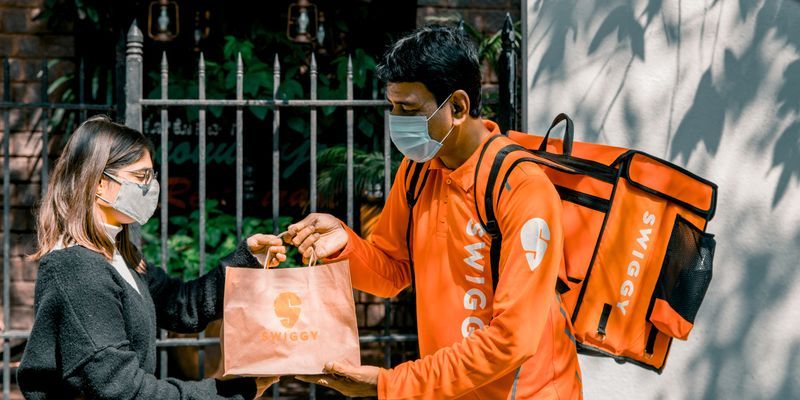Swiggy’s valuation for its upcoming IPO is derived from a comprehensive institutional roadshow and a deep focus on “strategic moats” within the company’s model, CFO Rahul Bothra said during a press conference.
“The valuation process is really about the institutional roadshow we’ve recently completed,” Bothra said.
Rohit Kapoor, CEO of Swiggy Food Marketplace, elaborated that the IPO pricing is meant to be “attractive” to encourage robust participation from investors.
The company’s strategic moat is built on its diverse service offerings, high customer engagement, and strong user retention, he noted. One such way of diversifying revenue streams is Swiggy’s partnership with HDFC for a co-branded credit card.
CEO Sriharsha Majety further elaborated on Swiggy’s differentiated approach, delineating the difference between Swiggy’s model and other grocery retailers like D-Mart.
“There is a different proposition from, let’s say a D-Mart, which is all centred around value, whereas the quick commerce industry is centred fully around convenience. You need to have enough value that it doesn’t feel irresponsible, and you need to make sure that they’re [customers] getting good value for money. But it is not centred on value,” Majety said.
Since the introduction of Instamart, Swiggy has aggressively reduced delivery times—from 17 minutes to just over 12—meeting consumers’ growing demand for “immediacy and selection,” according to Majety.
Swiggy’s leadership remained measured in their responses about the company’s IPO valuation during the press conference. The Zomato rival is looking to raise Rs 11,330 crore through a combination of a fresh issue and an offer-for-sale component.
Citigroup’s Arvind Vashistha, representing one of the book-running lead managers, emphasised that the offering has been “attractively priced.” He noted, “If you look at the basis of the offer price, and if you compute our ratios relative to the closest listed peers, as disclosed in the DRHP, [and] when you combine the qualitative factors, you will find it is quite attractively valued.”
Addressing the financial strength and strategic expansion, Bothra shared, “From FY22 to FY24, our platform’s gross order value grew by 32% overall, with quick commerce posting a remarkable 122% growth and food delivery expanding by 16%.”
Bothra also elaborated on the company’s push to increase service frequency and user engagement. “In FY23, users who spent Rs 100 in their first year were spending over Rs 200 by year six, and now, 27% of our users are utilising multiple services on our platform.”
On profitability, Swiggy disclosed that its food delivery business achieved a positive adjusted EBITDA of 0.8% in Q1 FY25, while its quick commerce segment has shown significant improvement in contribution margins, moving from -23% in FY23 to -3% in Q1 FY25.










